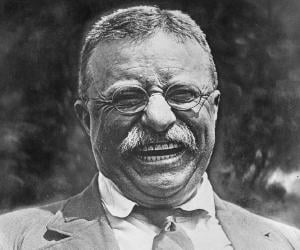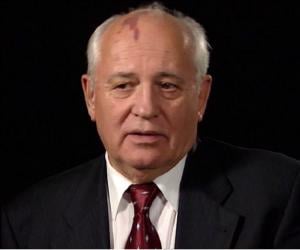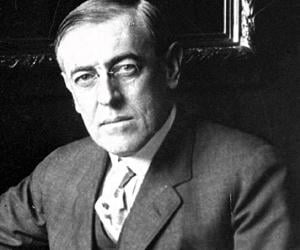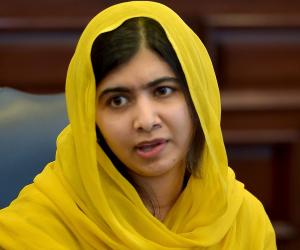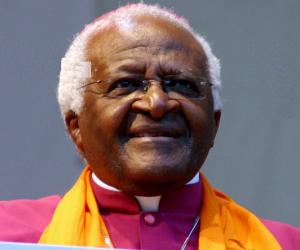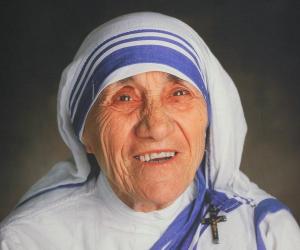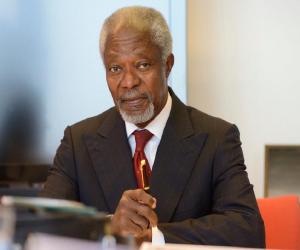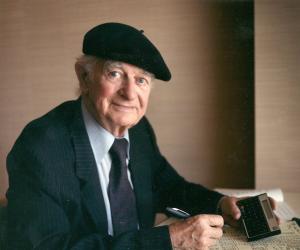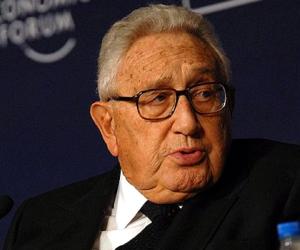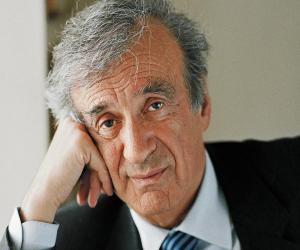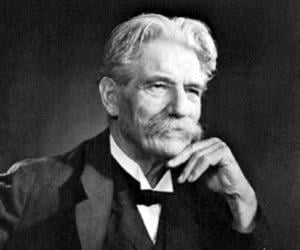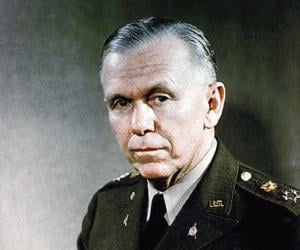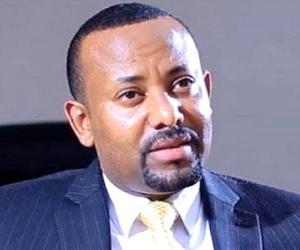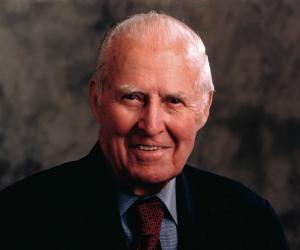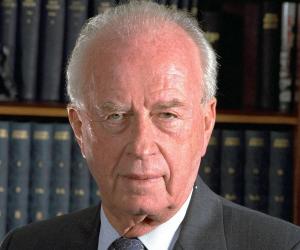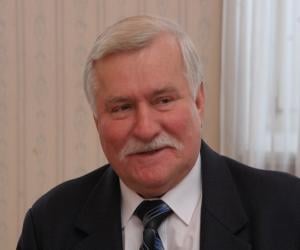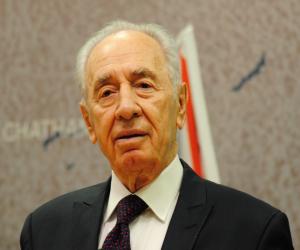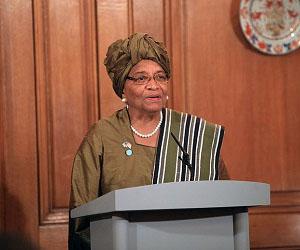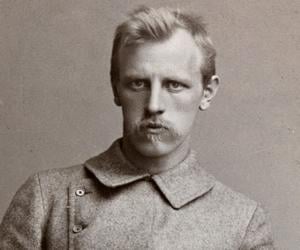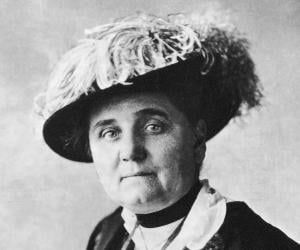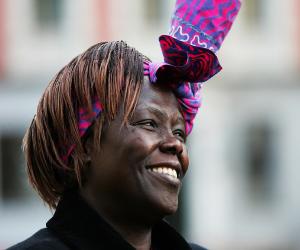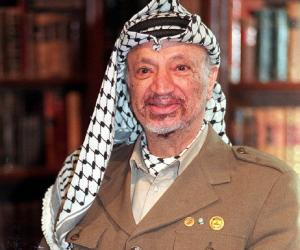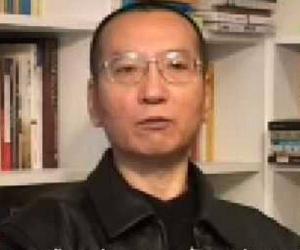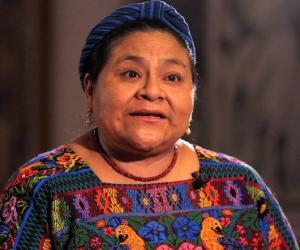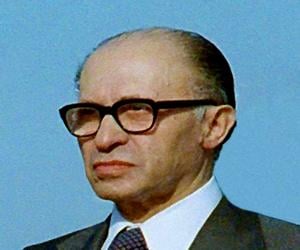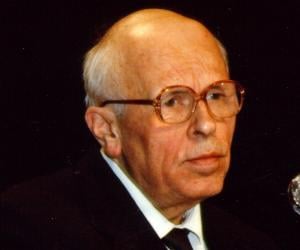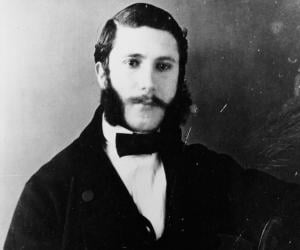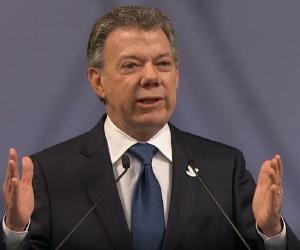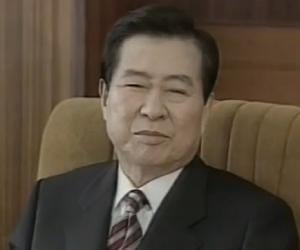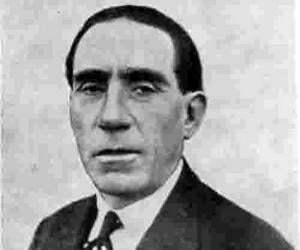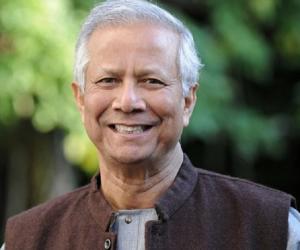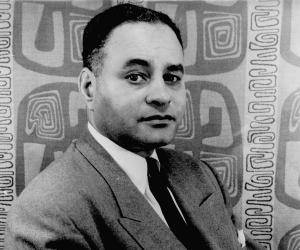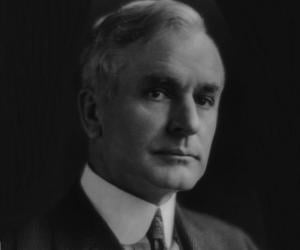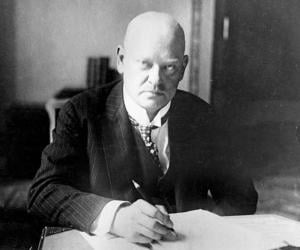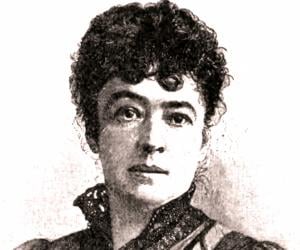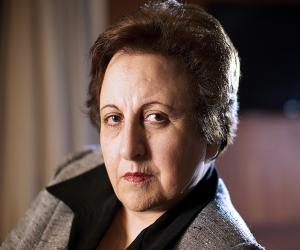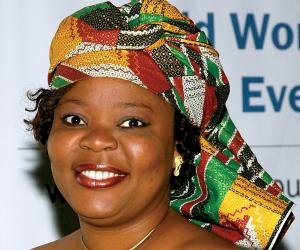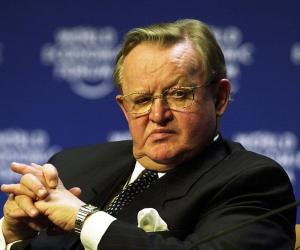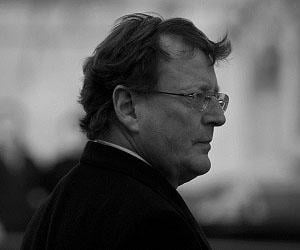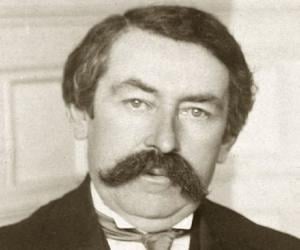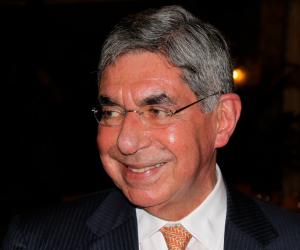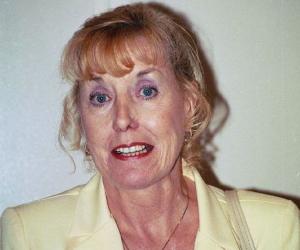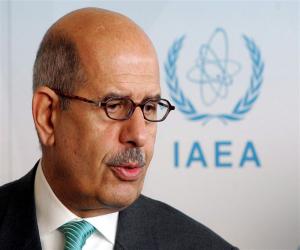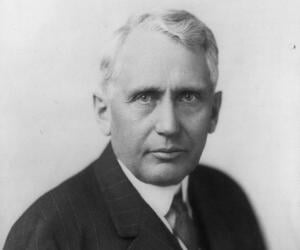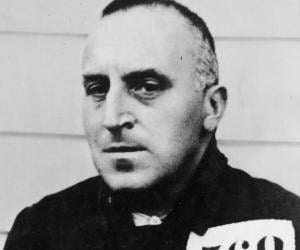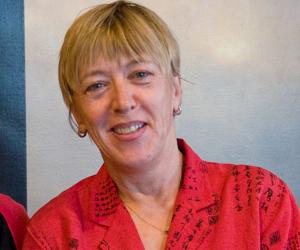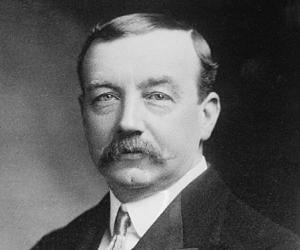A leader in the civil rights movement in the mid-twentieth century, Martin Luther King Jr. is best remembered for advancing civil rights through nonviolence and civil disobedience. A man of Christian faith who was inspired by Indian freedom fighter Mahatma Gandhi’s nonviolent activism, he was honored with the Nobel Peace Prize for fighting racial inequality.
The 26th president of the United States, Theodore Roosevelt is generally ranked as one of the five best presidents of the country. A man of many talents, he was a politician, conservationist, naturalist, and writer. He supported Progressive Era policies in the early 20th century and championed his "Square Deal" domestic policies.
Born into a poor peasant family, Mikhail Gorbachev went on to become one of the most influential figures of the Soviet Union. He served in various positions, most notably as the General Secretary of the Central Committee of the Communist Party of the Soviet Union. He is regarded as one of the most prominent personalities of the 20th century.
From presidential cabin of Princeton University to presidential office of the White House, Woodrow Wilson ushered a series of progressive reforms that changed the American politics forever. The 28th President of USA, Woodrow Wilson introduced several ground-breaking policies including the Federal Reserve Act. He played a key role in founding the first intergovernmental organisation—the League of Nations—for which he was awarded the Nobel Peace Prize.
Named to Time 100 thrice, Pakistani education activist Malala Yousafzai exhibits phenomenal grit and inspires young girls everywhere. An assassination attempt by Islamic fundamentalists could not dampen her spirit, and she fought back with a bestselling memoir and won the Nobel Peace Prize as its youngest recipient, at 17.
An Albanian-Indian Roman Catholic nun and a missionary, Mother Teresa was the founder of Missionaries of Charity, a Roman Catholic religious congregation. She was both an admired and controversial figure and was the recipient of the Nobel Peace Prize. While she was admired by many for her charitable work, she also earned criticism for her stance against abortion and contraception.
Ghanaian diplomat Kofi Annan served as the seventh Secretary-General of the United Nations from 1997 to 2006. He was the founder and chairman of the Kofi Annan Foundation and a co-recipient of the 2001 Nobel Peace Prize. During his stint with the UN, he launched the UN Global Compact and worked to combat HIV/AIDS.
Only person to win two unshared Nobel Prizes, Linus Carl Pauling was an American theoretical physical chemist, who received the 1954 Nobel Prize in Chemistry for his work on nature of chemical bond and 1962 Nobel Prize for Peace for his efforts to stop nuclear weapon testing. Also a prolific writer and educator, he has published 1,200 books and papers.
Henry Kissinger's heart-warming story of a Jewish who fled Nazi Germany in 1938 to become an influential politician in the USA is truly inspirational. As a National Security Advisor and US Secretary of State, Kissinger played a key role in the US foreign policy from 1969 to 1977.
Nobel Peace Prize-winning activist Elie Wiesel is best remembered for his book Night, which relates his traumatic experience as a Jewish prisoner in the Nazi concentration camps. After surviving the Holocaust, he became a journalist and a human rights activist, and also helped in establishing the U.S. Holocaust Memorial Museum.
Albert Schweitzer was an Alsatian polymath who won the Nobel Peace Prize in 1952 for his philosophical work, Reverence for Life. He is credited with founding the Albert Schweitzer Hospital, which was a direct result of his philosophical expression. Schweitzer is also credited with influencing the Organ reform movement, which began in the mid-20th-century.
George Marshall was an American statesman and soldier who played a key role in the Allied victory during the Second World War. Marshall served as the third US Secretary of Defense from 1950 to 1951. As Secretary of State, George Marshall advocated economic recovery programs to aid post-war European countries, for which he was honored with the Nobel Peace Prize.
Abiy Ahmed is an Ethiopian politician and the current prime minister of Ethiopia. Since becoming the prime minister, Abiy Ahmed has been lauded for launching a wide program of economic and political reforms in Ethiopia. He also played a major role in ending the 20-year Eritrean–Ethiopian War for which he was honored with the 2019 Nobel Peace Prize.
Norman Borlaug was an American agronomist who played a key role in the Green Revolution, a set of research technology transfer initiatives that increased agricultural production, for which he won the Nobel Peace Prize in 1970. Nicknamed the Father of the Green Revolution, Borlaug was also honored with the Congressional Gold Medal and Presidential Medal of Freedom for his work.
Israeli politician, statesman, and general, Yitzhak Rabin, served two stints as the prime minister of Israel. As a young man, he joined the military and served for nearly three decades. He had an extensive political career as well and played a key role in embracing the Israeli-Palestinian peace process. He was assassinated in November 1995.
Lech Walesa is a Polish dissident and statesman. From 1990 to 1995, Walesa served as the first elected president of Poland. A Nobel Peace Prize laureate, Walesa was adjudged Time Person of the Year in 1981. In 1999, he was named in the magazine's most important people of the 20th century list.
Liberian politician, Ellen Johnson Sirleaf, served as the 24th President of Liberia from 2006 to 2018. She was the first elected female head of state in Africa. An alumnus of the Harvard University, she began her political career in the 1970s and rose through the ranks with time. She is the recipient of the 2011 Nobel Peace Prize.
Fridtjof Nansen was a Norwegian polymath who won the prestigious Nobel Peace Prize in 1922 for his post-war efforts after the First World War. A well-known explorer, humanitarian, and diplomat, Nansen achieved international fame for his attempt to reach the geographical North Pole during his Fram expedition. His techniques and innovations influenced a generation of succeeding Antarctic and Arctic expeditions.
Jane Addams was an American social worker, reformer, settlement activist, public administrator, sociologist, and author. Addams was a prominent leader in the history of women's suffrage and social work in the USA. She is credited with co-founding one of America's most popular settlement houses, the Hull House in Chicago. Addams is also credited with co-founding the American Civil Liberties Union.
Wangari Maathai was a Kenyan environmental, social, and political activist. She achieved popularity after becoming the first African woman to be honored with the prestigious Nobel Peace Prize. She is credited with founding a non-governmental organization called The Green Belt Movement (GBM), which focuses on women's rights and environmental conservation.
Yasser Arafat was a Palestinian political leader. One of the most important figures of the ongoing Israeli-Palestinian conflict, which began in the mid-20th century, Yasser Arafat remains a controversial figure as he is regarded as a hero by the Palestinian people while the Israelis view him as a terrorist.
Liu Xiaobo was a Chinese activist, literary critic, and philosopher. He is best remembered for organizing campaigns that aimed at ending the one-party rule in China. He was honored with the 2010 Nobel Peace Prize for his struggle for human rights in China. Liu is the first Chinese citizen to be honored with a Nobel Prize while residing in China.
Nobel Peace Prize-winning Guatemalan activist is known for her fight for the rights of indigenous people and women. Her entire family was accused of participating in guerrilla activities, brutalized, and killed by the Guatemalan army. She has been a UNESCO Goodwill Ambassador and founded the first Guatemalan indigenous political party.
Menachem Begin was an Israeli politician who served as the sixth Prime Minister of Israel. In this position, he signed a peace treaty with Egypt in 1979, for which he and Egyptian politician Anwar Sadat shared the Nobel Prize for Peace. He implemented several reforms to improve the socio-economic condition of Israeli citizens and improve the general quality of life.
Andrei Sakharov was a Russian dissident and nuclear physicist best remembered for designing RDS-37, Soviet Union's first two-stage hydrogen bomb. Also an activist for peace and human rights, Andrei Sakharov was honored with the Nobel Peace Prize in 1975. The Sakharov Prize for Freedom of Thought, which is awarded by the European Parliament, is named in his honor.
Henry Dunant was a Swiss businessman, social activist, and humanitarian. He is credited with co-founding and promoting the Red Cross. In 1901, he became the first Swiss Nobel laureate when he was honored with the Nobel Peace Prize. Dunant is also credited with founding the Swiss branch of YMCA. His life inspired the 1948 historical drama film, Man to Men.
Juan Manuel Santos is a Colombian politician who served as the 32nd president of Colombia. He is credited with co-founding the Social Party of National Unity, which he led to prominence. For his efforts to put an end to Colombia's more than 50-year-long civil war, Santos was honored with the 2016 Nobel Peace Prize.
Son of a farmer, Kim Dae Jung later took over a company that he had initially joined as a clerk. He escaped from the clutches of death during the Korean War. The Nobel Peace Prize-winning politician also became the first opposition leader to be elected as the South Korean president.
Louis Renault was a French industrialist. A pioneer of the automobile industry, Renault is remembered for co-founding the popular automobile manufacturer, Renault Group. Renault is credited with building factories that contributed immensely to the war effort during the First World War; the Renault FT tank, the first tank of modern configuration, was created and manufactured by his company.
Gustav Stresemann was the only one of his siblings to complete university education. He grew up to serve as the chancellor of the Weimar Republic briefly, before becoming the foreign minister. He shared the Nobel Peace Prize with the French foreign minister Aristide Briand for an agreement of reconciliation.
Once a governess of the four daughters of the affluent Suttner family, Bertha von Suttner later married the sisters’ elder brother, Baron Arthur Gundaccar von Suttner. The Austrian novelist was known for her peace activism, which made her the first female to receive the Nobel Peace Prize.
Nobel Peace Prize-winning human rights activist and lawyer Shirin Ebadi is known for her significant work with refugees, women, and children, and her countless books, such as Iran Awakening. In spite of being Iran’s first female judge, she found it difficult to establish herself in the male-dominated profession.
Leymah Gbowee is a Liberian peace activist who played an important role in leading the Women of Liberia Mass Action for Peace, a nonviolent peace movement. The movement played a significant role in ending the Second Liberian Civil War. In 2011, Gbowee shared the Nobel Peace Prize with Tawakkul Karman and Ellen Johnson Sirleaf for her work concerning women's rights.
Martti Ahtisaari is a Finnish politician who served as the tenth president of Finland; he was in office from 1994 to 2000. In 2008, he was honored with the prestigious Nobel Peace Prize for playing an important role in resolving long-lasting and serious conflicts, such as the ones in Namibia and Iraq. In 2008, he was also awarded the Delta Prize for Global Understanding.
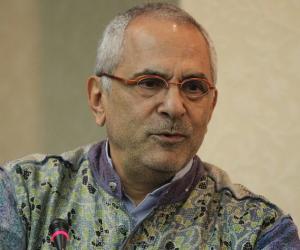
Nobel Peace Prize-winning French stateman Aristide Briand had been the prime minister of his country for 11 terms, apart from holding 26 ministerial posts throughout his career. He played major roles in the drafting of the Pact of Locarno and Kellogg-Briand Pact, and had founded journals such as l’Humanité.
Nobel Prize-winning Costa Rican politician Oscar Arias Sanchez has been the president of his country twice and is known for his effective Central American peace plan. Born into an affluent coffee-farming family, Sanchez completed his PhD from the University of Essex and has more than 50 honorary doctorates.
Betty Williams was a peace activist from Northern Ireland. She was the president of the World Centre of Compassion for Children International and headed the Global Children's Foundation. She and Mairead Corrigan were jointly awarded the Nobel Peace Prize in 1976. She traveled the world and lectured on topics of peace, education, anti-extremism, inter-cultural and inter-faith understanding, and children's rights.
Mohamed ElBaradei is an Egyptian diplomat and law scholar. From 14 July 2013 to 14 August 2013, he served as the vice president of Egypt on an interlude basis. In 2005, he was honored with the prestigious Nobel Peace Prize for his work as the director general of an intergovernmental organization called the International Atomic Energy Agency (IAEA).
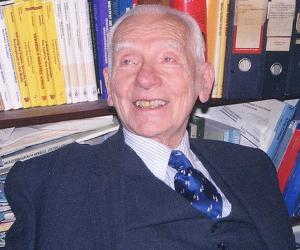
Joseph Rotblat was a physicist remembered for his work on the Manhattan Project at the Los Alamos Laboratory during World War II. He left the laboratory on grounds of conscience and his work on nuclear fallout played a key role in the events preceding the 1963 Partial Nuclear Test Ban Treaty. In 1995, Joseph Rotblat won the Nobel Peace Prize.
Nobel Peace Prize-winning activist Jody Williams is known for his contribution to the formation of the International Campaign to Ban Landmines. She has received 15 honorary degrees and was also named the Glamour magazine’s Woman of the Year. She has also penned books such as After the Guns Fall Silent.

